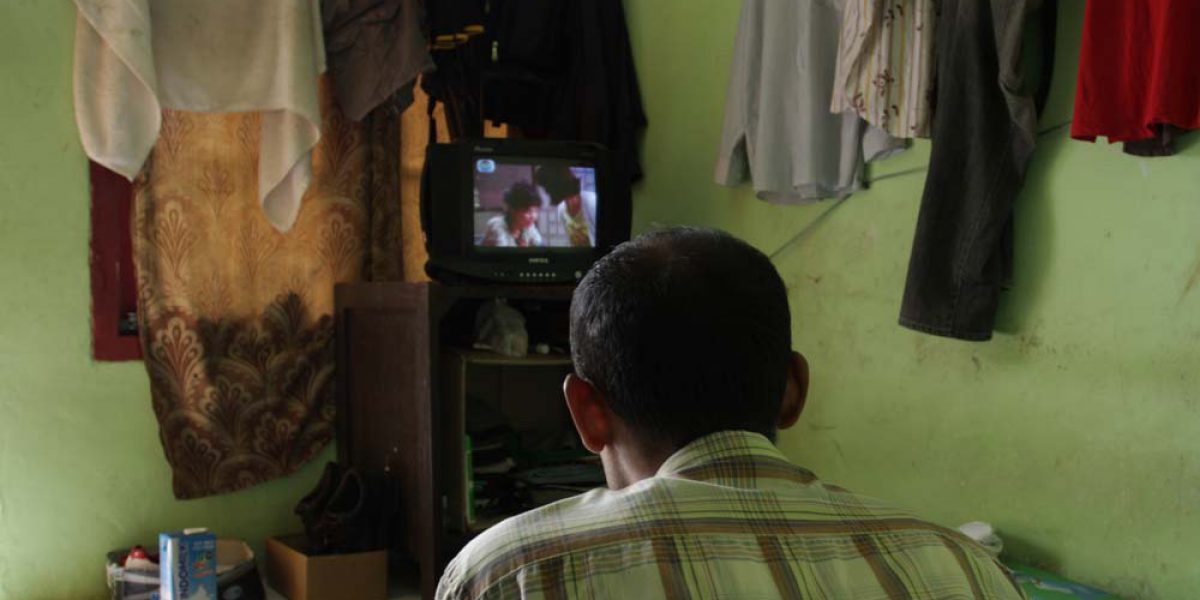Indonesia: Escape from Rakhine state
12 November 2012

JRS Indonesia met *Noor, an ethnic Rohingya from Buthidaung town in Rhakine State, Myanmar, in Cisarua at the end of October 2012. His story is a harrowing tale of struggle and survival in the face of poverty and persecution.
Cisarua, 13 November 2012 — Eight years ago after we celebrated Eid Al-Adha, a four-day Islamic religious holiday, my family was swimming in the seaside when suddenly the army came and took the men away. For three days we were forced to porter, carrying heavy loads of up to 60 kg on our backs for kilometres at a time.
One of my relatives was too weak, and they beat him until his head was bleeding. I tried to help him but an officer saw and beat me until I fell to the ground, losing a few teeth and a bloody face. We were dismissed at the end of the week, but had to find our own way home with food or guidance.
This is a normal part of life as a Rohingya in Rakhine state, on the western coast of Myanmar. We have no access to citizenship and cannot move freely, except to certain places at limited times. We lived under the threat that the government would come and take our land and give it to others. We were also restricted in practicing our religion, Islam.
Our temporary ID cards are not even accepted in most public services, such as hospitals. Many of our schools have been closed. We are forbidden to go to university. With limited access to education, we are only eligible for petty jobs. When I lived there, like many others in my village, I planted vegetables and grew my own food. Although we could grow many things, we were not allowed to go to town to sell it.
Military abuse makes our lives even harder. Many people are randomly taken away, tortured, and never return. People dying or disappearing is not something unfamiliar to us.
Abandoned in Indonesia
If any of us has money, we try to find a way out of the country to the nearest country in order to escape the persecution. My father urged me to find a safe place where I could work, so I went to Malaysia through Cambodia and Thailand. I worked there illegally for six years, and eventually managed to save enough money for a trip Australia.
An agent offered to take me, my wife, and family along with 16 other persons, from Malaysia to Australia by boat. After two nights of sailing, many passengers were seasick, so the captain left us in a hotel in Indonesia, promising that he would return after one or two days. One week later we were still waiting.
When we realized that we had been abandoned, the hotel manager forced us to leave as the hotel had only been paid for two nights. I did not know what to do. I decided to try to reach the UNHCR office in Jakarta. A local man said could get us tickets for one million Indonesian rupiah, or roughly US $104, per ticket. I only had 200 Malaysian ringgit, or US $65.33, in my pocket. I gave him my wife’s bracelet, which cost 1400 Malaysian ringgit, or US $458. He gave me four bus tickets to Jakarta and some cash in return. I had no other choice.
We travelled for three days before reaching Tanggerang, a city 25 km west of Jakarta. We took a taxi to the UNHCR office but when we arrived, it was closed so we decided to return the next day. We couldn’t pay for a hotel, but the manager kindly gave us a reduced rate of only 100.000 rupiah, or US$10.40. The taxi to the UNHCR had been more than two times that.
The next day we applied for refugee status at the UNHCR, and there was nothing left to do but wait for the decision. I knew the money we had left would not last long. Luckily we made an Indonesian friend, and he helped us to survive for the next two months. We found a cheap room to rent in Ciawi, a small town in West Java close to Jakarta, and currently live there.
Waiting with empty pockets
When our money ran out, I was desperate. Without access to employment, we had no way to earn money. I went to the detention centre to ask to be arrested, but was asked to leave after one night.
Two months later, my wife and niece made contact with Church World Service (CWS), an international humanitarian organisation. CWS gave us a small stipend, and referred us to JRS so that each of us could receive more support.
My situation in Indonesia is not easy, especially because I am not allowed to work here. Our survival depends on the little money given by charity. However, I feel safe, because I can practice my religion as Muslim here freely, and I have no problem with local people in the neighborhood or anywhere In Indonesia.
Right now our biggest concern is how to survive while we wait for the UNHCR decision. My only hope for the future is refugee status. I pray that UNHCR will announce the decision soon so we can move to another country to build our lives. I don’t care what country it is, but it would be hard to stay in Indonesia because it is poor, and a lot of people live difficult lives here.
I hope that one day we can finally realise our dreams of living safe, dignified lives where we are treated as human beings with rights, and my children can have an education and opportunities.
*The name has been changed to protect identity.


